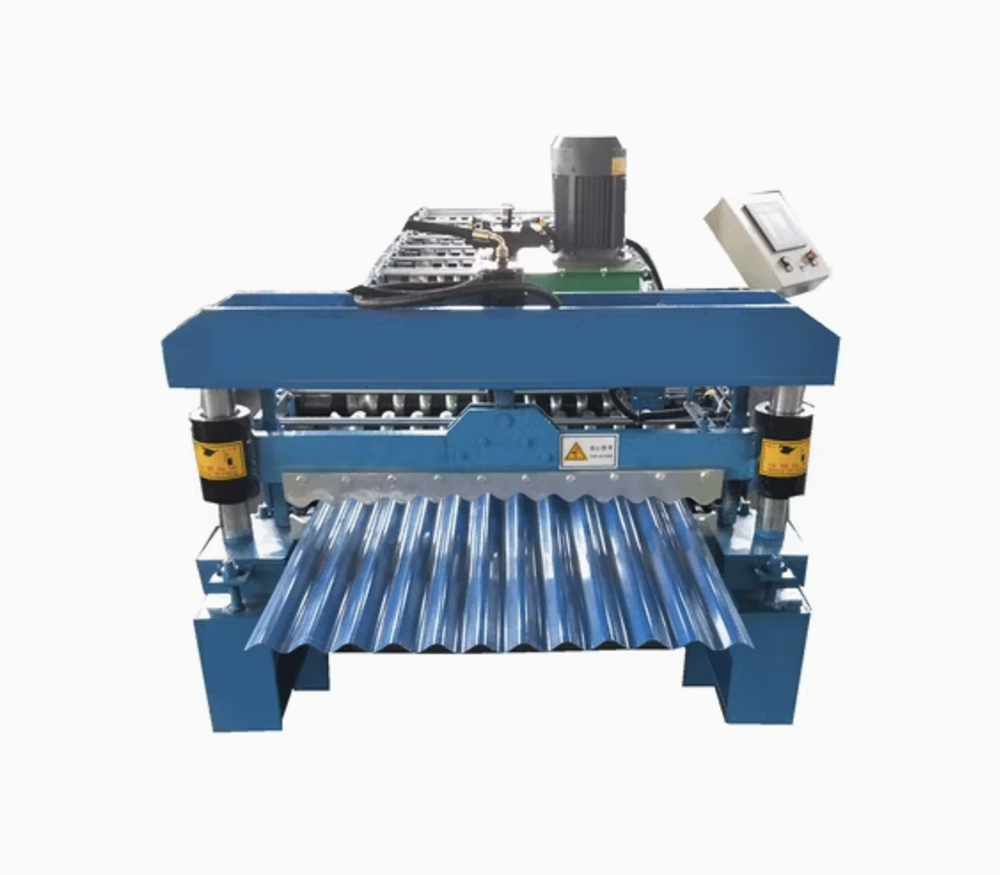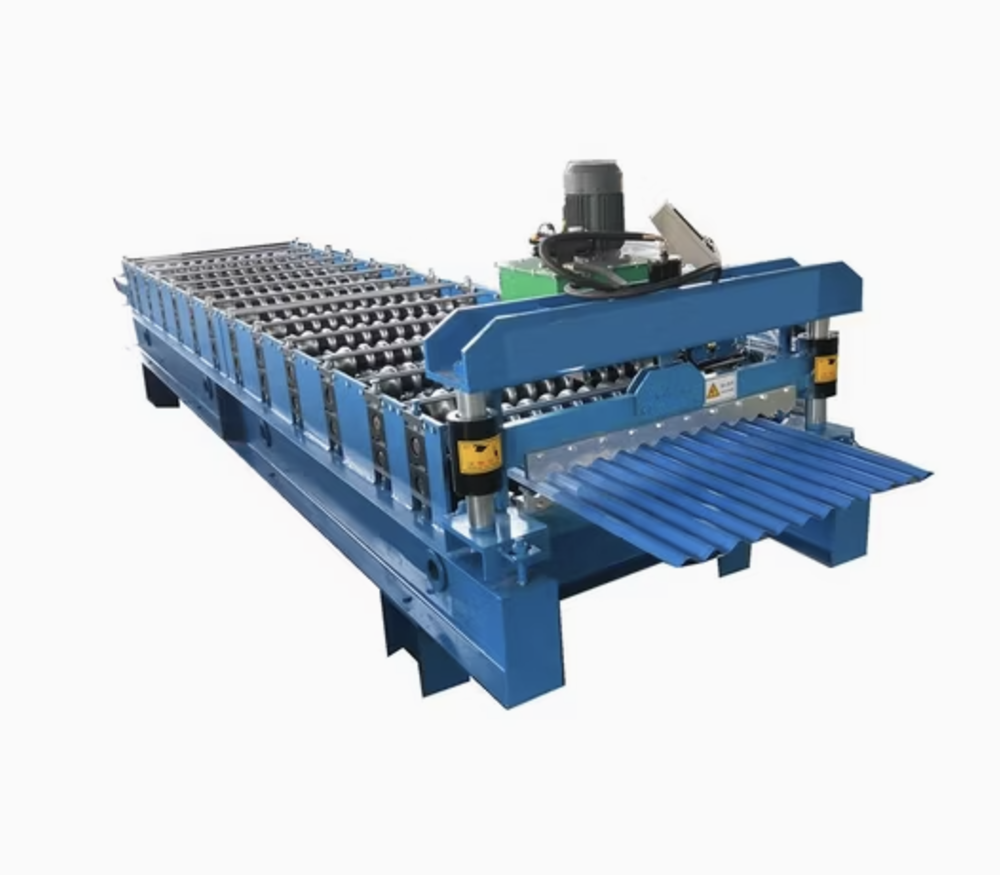To express an interest in this machine please submit the form below.

Not Sure What Machine You Need?
Select Your Profile, We'll Match It
Choose your desired profile drawing, and let Machine Matcher connect you with the best roll forming machine tailored to your needs.
Browse Profiles


Corrugated roll forming machines are vital equipment for producing corrugated metal sheets commonly used in roofing, siding, and decorative cladding applications. These machines convert metal coils into corrugated profiles with precision, offering uniformity, high production speeds, and minimal material waste. They are a staple in the UK construction and manufacturing sectors due to their reliability and versatility.
A corrugated roll forming machine is a fully automated system designed to produce corrugated profiles from materials such as galvanized steel, aluminum, and pre-painted steel. These machines incorporate advanced technology, including PLC control systems and hydraulic cutters, to ensure high-quality and consistent output.
| Parameter | Details |
|---|---|
| Material Thickness | 0.2mm to 1.2mm |
| Material Width | 1000mm to 1250mm |
| Machine Speed | 10-15m/min (higher speeds available as an option) |
| Roller Material | High-grade steel with chrome plating |
| Number of Stations | 18-22 stations (varies by design) |
| Cutting System | Hydraulic cutting with heat-treated blades |
| Control System | PLC with touchscreen interface (brands like Siemens or Mitsubishi) |
| Motor Power | 5.5kW to 15kW (depends on machine size and capacity) |
| Power Supply | 380V, 50Hz (customized options available for UK standards) |
| Profile Type | Corrugated profiles with standard and custom wave heights |
| Coil Weight Capacity | Up to 5 tons |
| Machine Dimensions | Approximately 8000mm x 1500mm x 1300mm |
| Optional Extras | Uncoiler, recoiler, stacker, remote PLC system, embossing rollers |
A: These machines can process a range of materials, including galvanized steel, aluminum, pre-painted steel, and zinc-coated sheets.
A: Profiles can be highly customized to meet specific requirements, including wave height, material thickness, and sheet width.
A: Safety features include emergency stop buttons, safety guards, and automatic shutdown in case of system overload.
A: Setup typically takes a few hours, including calibration and testing. A professional technician can assist for optimal results.
A: Regular maintenance includes lubrication of rollers, checking electrical connections, and inspecting the hydraulic system. Detailed maintenance schedules are provided by manufacturers.
A: Yes, there are compact models available that are ideal for small-scale or bespoke production needs.
A: Yes, machines can be configured to operate on the UK’s standard 380V, 50Hz power supply.
Copyright 2026 © Machine Matcher.